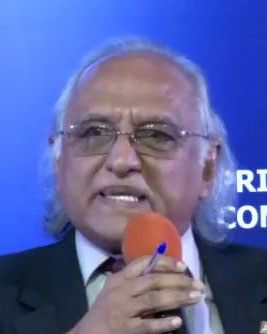Business and Economic Commentary by Christopher Ram
Beginning with the exchange between the Chairman and a shareholder at Banks DIH Limited Annual General Meeting held on 27 January 2024, there appears to have been much interest in the share prices of public companies. In fact, this writer holds the view that because of a quirk in how prices of shares are determined on the Stock Exchange; the terrible illiquidity in the marketplace for shares, the awful and inexplicable dividend policy of companies and the lack of investment opportunities, the demand for the few shares offered for sale, the prices of the shares of several of the companies cannot be easily justified.
Here is a picture of the share price movements of eight of the public companies over the period January 2019 to December 2023. With an acknowledged anomaly in the shares of Caribbean Container Inc.(see S/N letter column of 8 February, 2024, I consider it prudent to exclude the figures for that company.
 Expressed another way, according to the Stock Exchange website the overall capitalisation of the stock market between the two dates moved from $301,412 Mn. to $819,884 Mn. or 172%. What is clear is that for some reason the market has begun an adjustment moving from a $1,062,213 Mn. in July 2022 to $819,884 Mn. in December 2023, a decline of 23%.
Expressed another way, according to the Stock Exchange website the overall capitalisation of the stock market between the two dates moved from $301,412 Mn. to $819,884 Mn. or 172%. What is clear is that for some reason the market has begun an adjustment moving from a $1,062,213 Mn. in July 2022 to $819,884 Mn. in December 2023, a decline of 23%.
If in fact, this trend continues, the consequences can be severe for pension funds and insurance companies which would be undesirable. The people who are best placed to bridge the gap between what might be a realistic price and the traded price are those companies which have been hoarding profits instead of rewarding shareholders for their loyalty and who have been funding their capital programmes out of retained profits, such as DDL and others who have large liquid balances, including with their banks, such as Banks DIH.
Another possibility is for companies to buy back their shares as permitted under the Companies Act, a practice largely unknown in Guyana. Another possibility is for the commercial banks to pay a more economic rate of interest on deposits. Currently, if shareholders were to take advantage of the share price bubble and sell their shares, there are few alternative saving or investment opportunities. It was part of the PPP/C mantra that commercial banks should start narrowing the spread between the interest they pay and the interest they charge as the Bank of Guyana has had some success with trading in foreign exchange.
This column will be monitoring developments over the next few months as public companies publish their financial statements and shareholders and the public gets a better understanding of their operations. For now, I will do a brief overview of the framework in place for the regulation of public companies.
The most basic of these is the Companies Act under which local companies are incorporated here while foreign companies can either incorporate in Guyana or register as a branch. The Bank of Guyana is also the regulator for both the banking sector and the insurance sector. All public companies must also comply with the Securities Industry Act which creates the Securities Council to exercise oversight over them.
Then there is the Guyana Stock Exchange which provides a platform for the trading of shares in public companies. The Stock Exchange is a private company which operates through a handful of member firms – Trust Company (Guyana) Ltd, Guyana Americas Merchant Bank Inc, Beharry Stockbrokers Ltd and Hand-in-Hand Trust Corporation Inc.
This seems to pose an immediate conflict of interest, something that is anathema in the financial world but all too familiar and widely accepted in Guyana. Trust Company has a very, very close relationship with DDL, Hand – Hand Trust with Banks DIH and Guyana Americas Merchant Bank Inc, Beharry Stockbrokers Ltd with the Beharry Group which includes two public companies – GBTI and Sterling Products Limited..
The apparent conflict does not end there. Trust Company and Hand – in – Hand Trust also manage pension funds which hold significant investments in public companies. If there was a major realignment in share prices, they would have some serious questions to answer.
Next week, we will look at the dividend policies of these public companies and why we think the companies can pay mush higher dividends.






